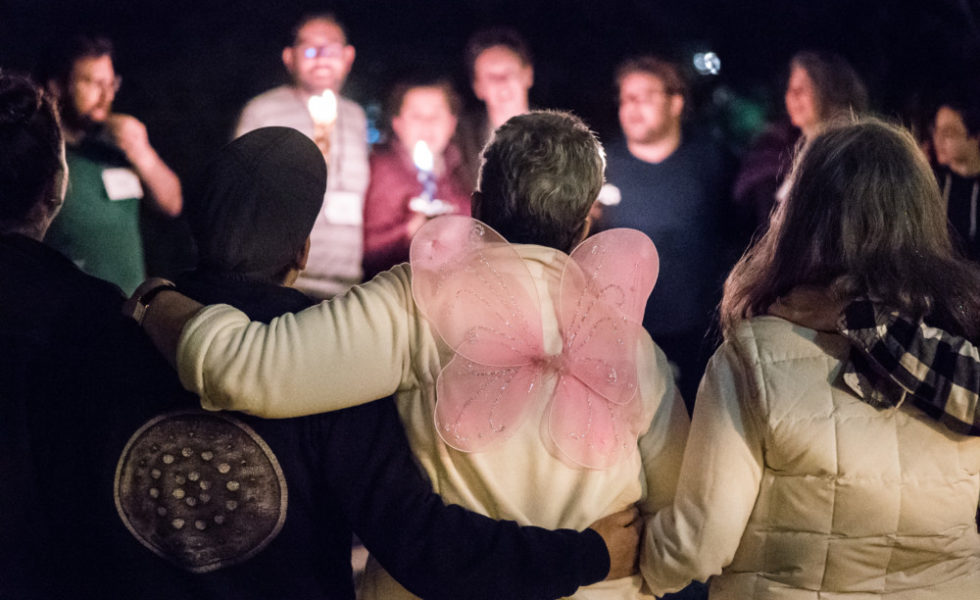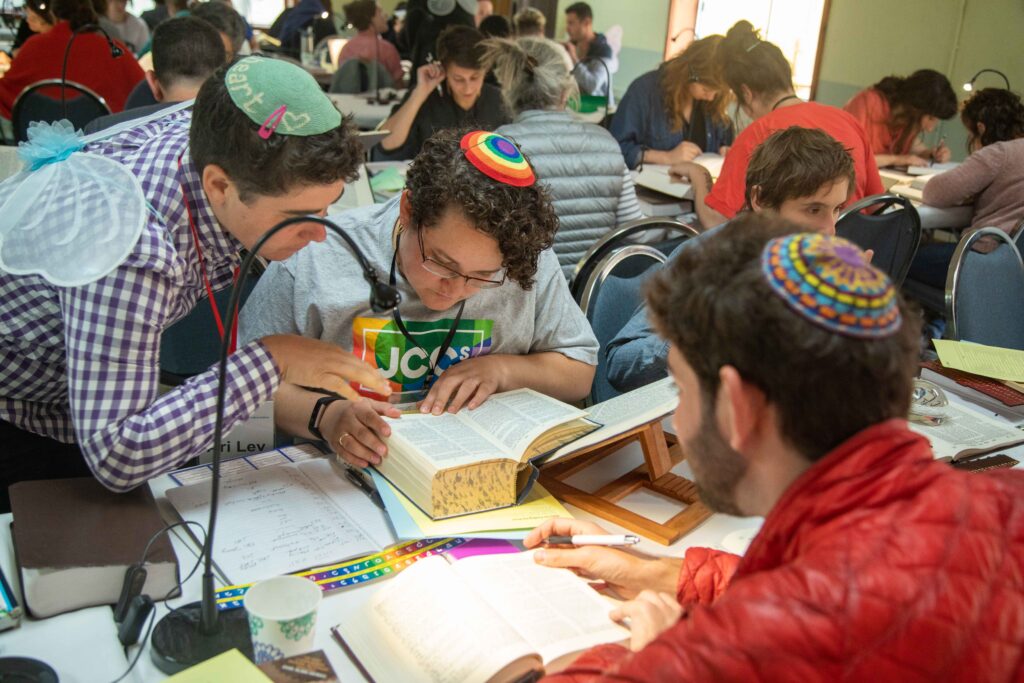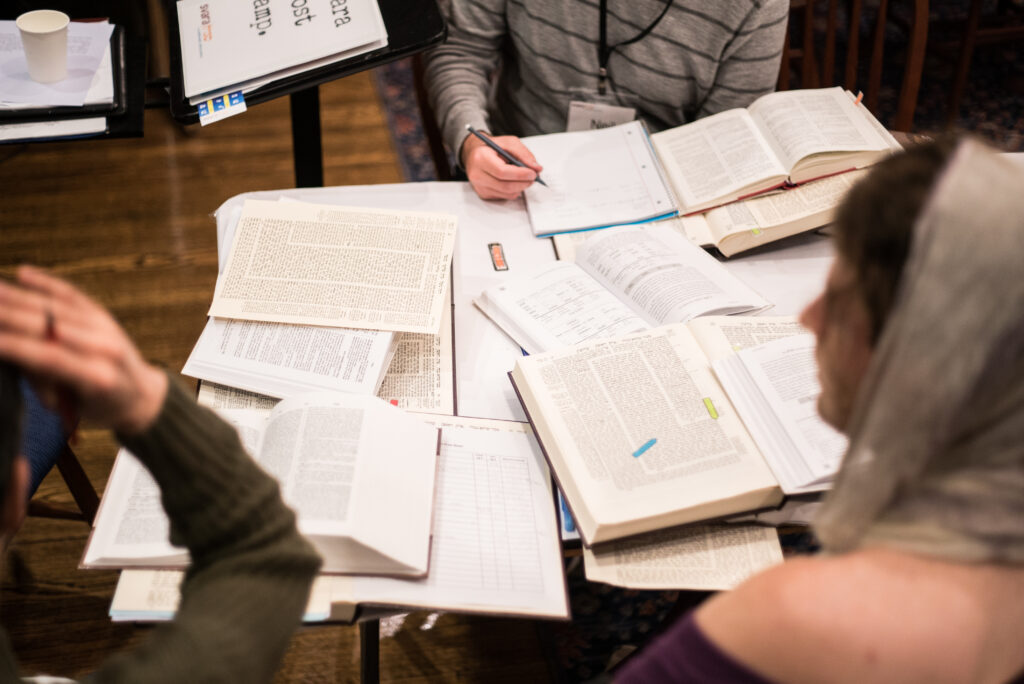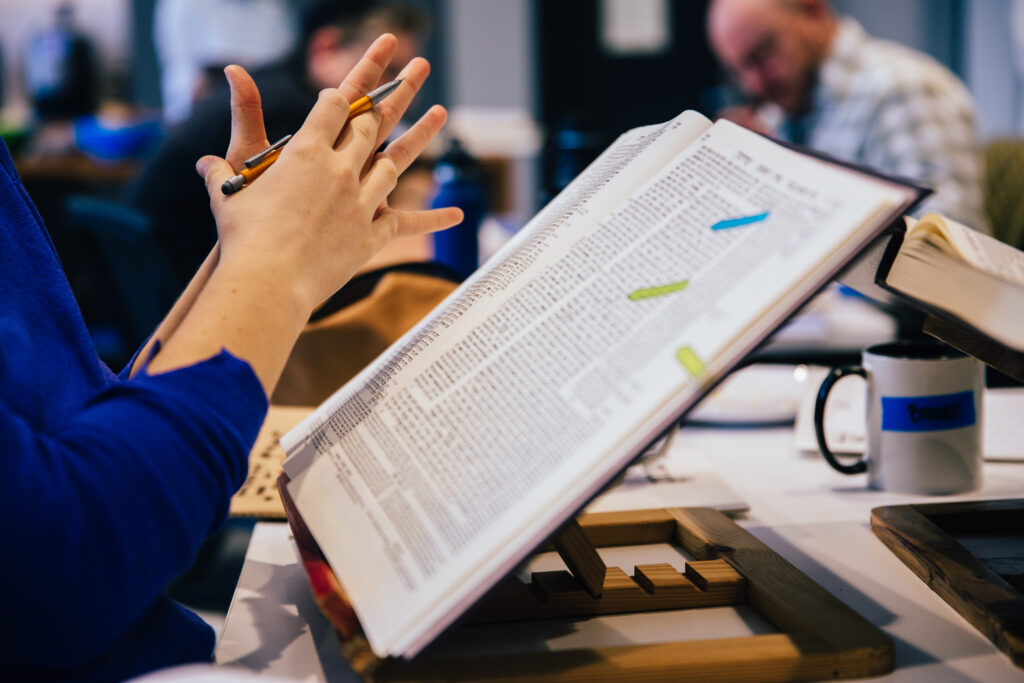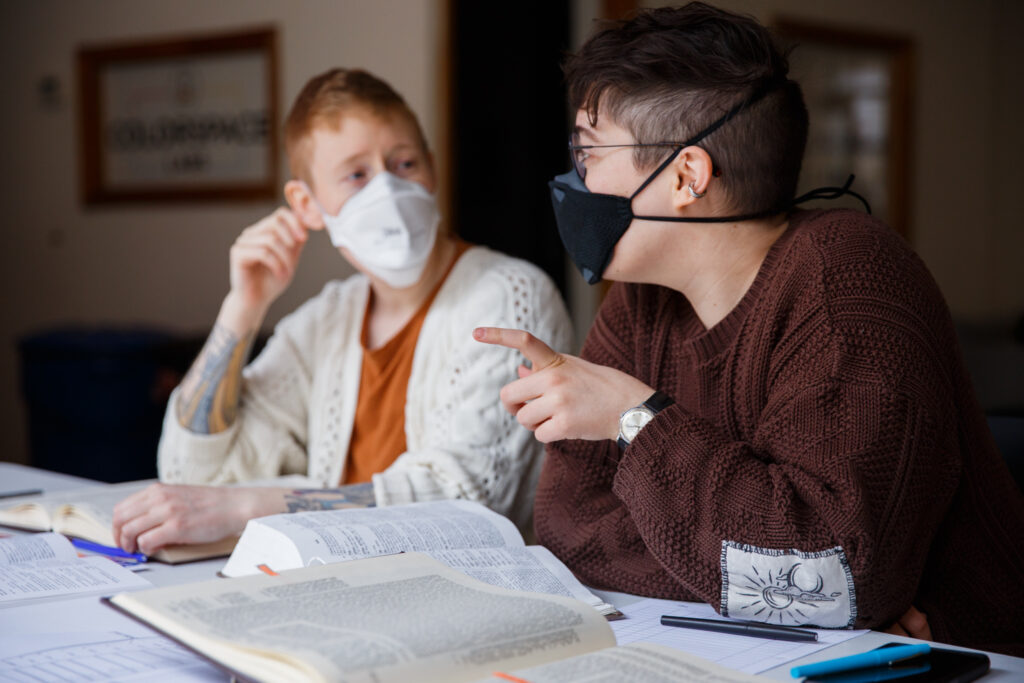Rebbe Nachman of Breslov used to say, “Friends do not despair, for a difficult time has come upon us joy must fill the air. We must not lose our faith in living; we must not despair. Though a difficult time has come upon us, joy must fill the air.”
Years ago I learned this riff from Chazzan Richard Kaplan, who was teaching a class on Nachman’s penchant for melody, music, and making meaning out of mayhem.
Rebbe Nachman was born in 1772 in the Podolia region of what is now the Ukraine. At his birth the region was under Russian domination; a few years of bubonic plague was winding down, the heads of aristocrats were rolling every which way in Mulhouse, France, a grisly presage of the final farewell to French feudalism and all its fixin’s. By the time the Rebbe died in 1810 wars had been fought all over Europe, revolution filled the planet, the Declaration of Independence had been signed thus flipping Turtle Island on its back. It was a tumultuous time—full of tragedy, death, and epic crashes. But even without all of the external upheaval, Rebbe Nachman’s life was no picnic. He stepped into leadership, marriage, and parenthood when he was 13 years old; half of his eight children died before they were toddlers; he attracted a following; he made the arduous journey to Palestine and back when he was 16; he was treated with contempt by other rabbis; he suffered from depression; he moved from his hometown which (a radical act in his day); his wife died; his house burned down; and he died of tuberculosis before he was 40. Yet he is known for teaching:
מצוה גדולה להיות בשמחה תמיד
It is a great mitzvah to be happy, always.
And
אין יאוש בעולם כלל
There is no despair in the world.
Living in these times, here in the not so united states of a place now called America, we are fraught with anger, fear, and a sense of dread. This is true for pretty much all of us, no matter where we land on the political spectrum. I have an acquaintance who is my polar political opposite yet we look identical in terms of our anxiety and distrust of the system. How does that happen? It feels like we are living in a house of mirrors with all of its attendant distortions.
So, I just gotta wonder, where would a guy like Rebbe Nachman, who was born into a similar time of mayhem and carnage, pandemic and corruption, loss, humiliation, and disease, find the inspiration to promote whacky ideas like, “It’s a great mitzvah to always be happy”?
Perhaps from the master teachers of the Talmud–those wisdom wizards, sideways sh*t disturbers, cultural outlaws, philosophical pranksters, and radical queer-headed geniuses we now call rabbis whose thoughts, logic, and spirituality Nachman studied intensely from his childhood to his death. His grandfather, Rabbi Israel ben Eliezer, whose street name is the Baal Shem Tov, was also a radical, mystic, hippy guy. From this, I deduce that between his intellectual acumen, spiritual lineage, and biological inheritance, Rebbe Nachman must have encountered Judaism’s most profound ideas about how to make spiritual sense out of untenable times.
The conditions under which the Talmud was born were horrific. I subscribe to the view that the destruction of the First Temple in 586 BCE was the earliest germ of what led to rabbinic Judaism. During the Babylonian exile, most Jews disappeared into the local woodwork; some pined for and eventually rebuilt the Temple in Jerusalem (with some support from the dominant Persian power structure of the time), and a small handful of folks found a super thin new way of thinking about their Jewishness that was creative, subversive, and restorative. That bunch bubbled underground until the first century BCE when everything Jewish in Jerusalem was rapidly crumbling and, with fissures everywhere, their influence emerged.
Jerusalem was plagued by a parade of brutal, despotic, megalomaniacal, and malevolently narcissistic rulers who took, overtook, and retook the region. The Jewish community was violently divided about how and what it meant to be a part of the tribe and to whom allegiance was due. Jews attacked other Jews. Jews were in cahoots with the oppressors. Jews slaughtered each other, debased each other, and the whole project might have ended right then and there had it not been for that tiny band of sideways, fringy, visionary folks who drove themselves and the Torah off in a new direction.
Their first radical move was to leave the fight. The Romans want Jerusalem? Let them have it. We will go out west and remake ourselves. The Zealots want the Temple? Let them have it. We will go talk and dream, and lovingly argue the truth out of Torah and remake ourselves.
These folks withdrew from centuries of rigid Jewish habits. Is it any wonder then, that they were also ready to lovingly abrogate those manifestations of Torah? While the power brokers, mercenaries, and religious fundamentalists were impaling each other‑-raping, pillaging, and tossing ancient incendiary devices into their enemy’s domiciles and desecrating each other’s houses of God–these proto rabbis were laying down complex ideas as a foundation for a future of life-affirming ethics, values, and laws. And yes, they too were power brokers, but they believed that strength was found “not with might, and not with force, but with spirit.” (Zechariah 4:6) And though they argued and jockeyed for position, they were diligent in keeping multiple points of view alive in their discussions and disputes. Notably, they had a knack for drawing an elegant line between recognizing truth and establishing convention.
אָמַר רַבִּי אַבָּא אָמַר שְׁמוּאֵל: שָׁלֹשׁ שָׁנִים נֶחְלְקוּ בֵּית שַׁמַּאי וּבֵית הִלֵּל, הַלָּלוּ אוֹמְרִים: הֲלָכָה כְּמוֹתֵנוּ, וְהַלָּלוּ אוֹמְרִים: הֲלָכָה כְּמוֹתֵנוּ. יָצְאָה בַּת קוֹל וְאָמְרָה: אֵלּוּ וָאֵלּוּ דִּבְרֵי אֱלֹהִים חַיִּים הֵן, וַהֲלָכָה כְּבֵית הִלֵּ
Rabbi Abba said that Shmuel said: For three years Beit Shammai and Beit Hillel disagreed. This group said: The halakha is in accordance with our opinion, and this group said: The halakha is in accordance with our opinion. Ultimately, a Divine Voice emerged and proclaimed: Both these and those are the words of the living God. However, the halakha is in accordance with the opinion of Beit Hillel. (BT Eruvin 13b)
In this teaching they show their ability to see the truth—that the words of the Divine emanate even from the mouths and minds of their competitors—while still preferencing one path over another. That they could have the inherited trauma of solving problems with swords swirling in their veins and still arrive at this inclusive conclusion is indeed surprising, inspiring, and so very queer.
Now is the time, friends, for each of us to let go of destructive habits and habitations, and move into a new place and way. Our tradition was born in times like these—divisive, oppressive, unsettled times. SVARA and SVARA-method learning encourages us to internalize this tradition which trains students to be open, confident, flexible, and brave. As our current world struggles with ancient and new threats to our lives—totalitarian regimes and policies, dehumanizing laws, wanton violence, rampant chauvinism, ecological disaster, insatiable greed, shocking arrogance, and pervasive digital dehumanization—it is crucial that we learn from the cultural warriors of the past. The first-wave rabbis were masters of both preservation and innovation. They worked with binaries but revealed that it is fluidity which allows change, growth, wholeness, and survival. In shattered times, there’s nothing more radical than living out your own true, messy, paradoxical wholeness. The rabbis weren’t perfect, or even all that nice sometimes, but they were painstakingly real and willing to be seen for all they were. They were blunt about the failings of authority, even as they were establishing themselves as authorities.
I have trust that this generation will continue to find inspiration from wisdom born in terrible times. May we find the strength to treat everyone with compassion and care, and perform acts of resistance and rejection of the stumbling blocks of hate and judgment. May our spiritual ancestors inspire us as we face the challenges and difficulties of our own time. Rebbe Nachman drew from those wells when he taught:
כל העולם כולו גשר צר מאוד, והעיקר – לא לפחד כלל
The whole world is a narrow bridge and the most important thing is not to be consumed by fear.
(interpreted from Likutei Moharan II #48)
May we also embrace the beautiful and hard truths, recognize the blessings and curses, grapple with life and death, and let us—here and now—choose beauty, blessing, and life.

